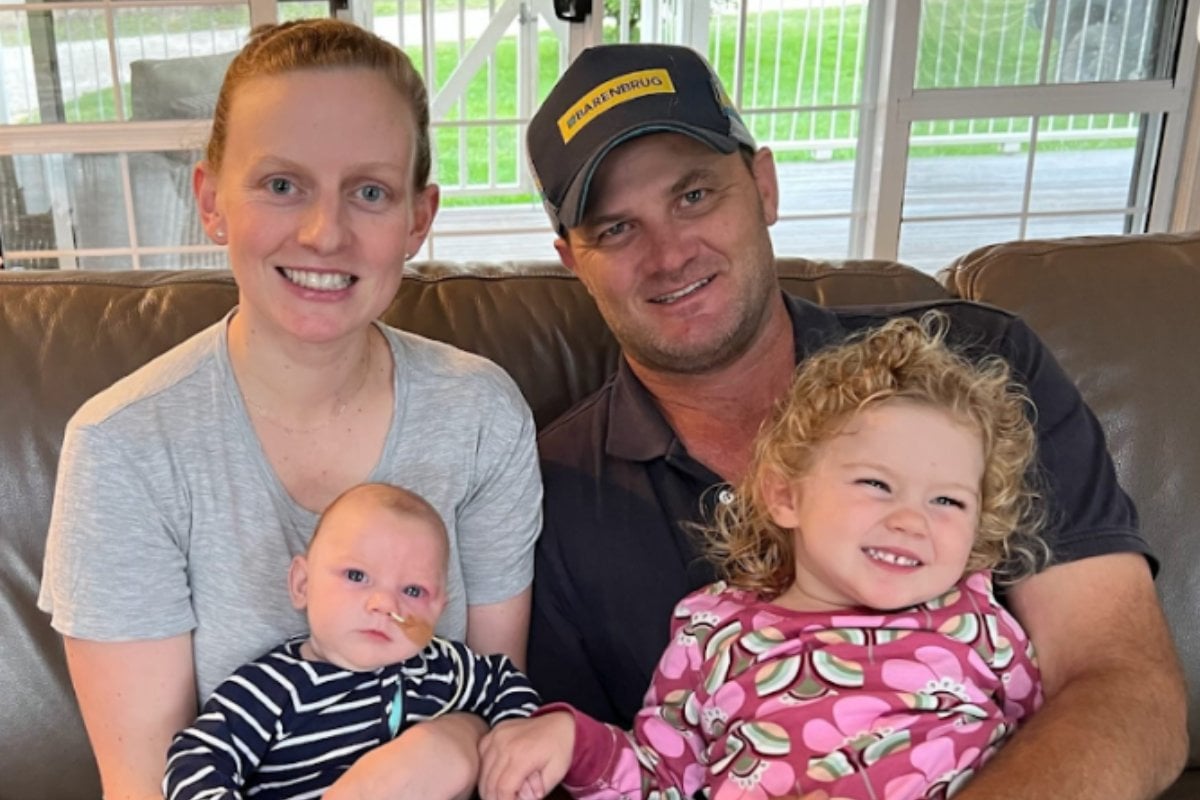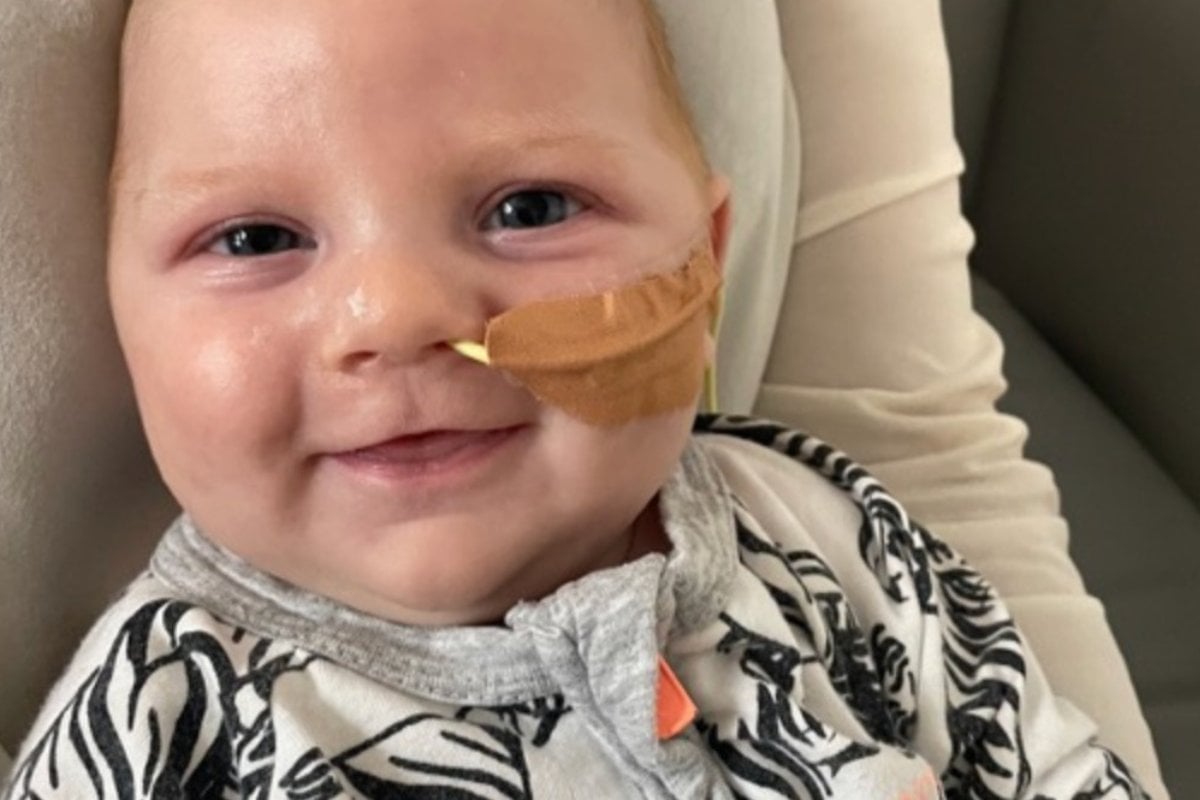
Aussie couple Hannah and Dave are going through something no parent should ever have to endure.
Recently, their three-month-old son Albie was diagnosed with a rare, terminal brain condition called Lissencephaly. This was a result of contracting congenital cytomegalovirus (CMV) in utero, which wasn't discovered until after he was born.
It's unclear how much time he has left.
"I had a totally low-risk pregnancy and birth, but the doctors were worried about him pretty soon after delivery," Hannah tells Mamamia.
"He was transferred to hospital as there were a few complications. He had quite a small head at birth, so with that in mind as well they did a CMV screen, and that's when it came back positive for congenital CMV. Our whole world was just flipped upside down in an instant."
Watch one mother's CMV story. Post continues below.
CMV is a member of the herpes virus family, and it's relatively harmless if contracted typically. For people with a healthy immune system, CMV is likely to cause no more than a temporary fever or headache.

